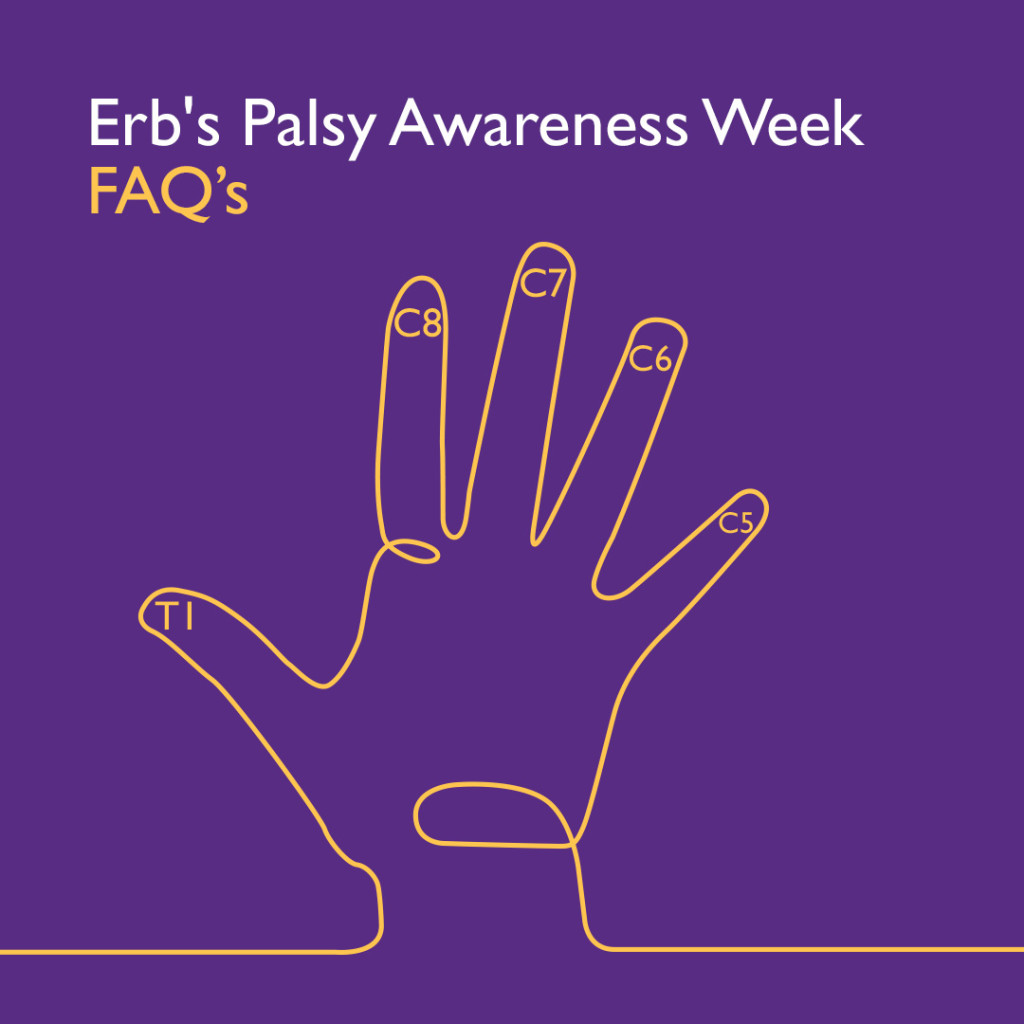What causes Erb’s palsy?
Erb’s palsy (also known as brachial plexus palsy) is caused as a result of injury or damage to the brachial plexus, a network of nerves in the neck, which supply movement to the shoulder, arm and hand.
Injury is commonly caused during birth where the baby’s shoulder becomes stuck after the head has been delivered (shoulder dystocia). The nerves in the trapped shoulder are stretched and injured as a result of medical or midwifery staff using excessive or inappropriate force when trying to deliver the baby.
What is shoulder dystocia?
Shoulder dystocia occurs in about 1 in 150 vaginal births (0.7%). It is usually unexpected but it is more likely to occur if the mother has diabetes, a high BMI, the baby is predicted to be big or shoulder dystocia has happened before.
Shoulder dystocia is when the baby’s head has been born but one of the shoulders becomes stuck behind the mother’s pubic bone, delaying the birth of the baby’s body. Extra steps are needed to release the baby’s shoulder and allow the baby to be born.
Can Erb’s palsy be avoided?
In many cases the injury can be avoided. However sometimes even with the best care injury can happen, but then the injury should be mild and usually temporary.
Sometimes during labour there can be warning signs but often shoulder dystocia happens unexpectantly and it is an obstetric emergency. However medical staff should be trained to deal with shoulder dystocia when it arises, so that the baby can be delivered safely and quickly without injury. Staff should not use excessive force. All hospitals should have shoulder dystocia protocols in place and offer their staff annual skills and drills training on management techniques.
The RCOG has issued national guidance on shoulder dystocia.
What are the signs of Erb’s Palsy?
The early signs of Erb’s Palsy are of a limp, lifeless arm, sometimes held in a “waiter’s tip” position.
Typically movement will gradually start to improve over the following weeks and months.
Where the injury is permanent, full movement will never be restored even with surgery.
Erb’s palsy can range in severity depending upon the number of nerves affected and the degree of damage to those nerves. At the milder end, there will simply be a mild weakness in the shoulder (which may not be immediately noticeable) and some reduced strength. But at the more severe end of the range the arm can be so badly damaged it is of little use at all and will look significantly different.
Typically the arm, shoulder and hand will be smaller and less developed than the opposite side. The arm will not fully straighten. The limb will be stiff and restricted in range of movement and strength, control, and power will be impaired. Digit function and hand grip can also be affected.
Those with Erb’s palsy often tend to ignore the affected arm and describe a loss of connection with the limb. They tend to suffer fatigue, sensation loss and sometimes pain.
Can you fully recover from Erb’s Palsy?
Yes – Erb’s Palsy can be temporary if the nerves are simply bruised or suffer very mild damage. Most babies with Erb’s Palsy will recover in full within several months. Statistics vary but suggest a full recovery in 80% of cases. However, if disability persists after 12 months it is unlikely that a full recovery will be made.
Where the injury is permanent treatment includes surgery and physiotherapy but whilst this can improvement the range of movement, it will not fully restore it.
It is important to seek an early referral to a specialist brachial plexus treatment centre as soon as possible.
Can I bring a claim for Erb’s Palsy?
If it can be proved that the medical care provided was negligent and it caused the Erb’s Palsy then you (or if it is your child, they) will be entitled to compensation.
It is important that you seek advice from specialist medical negligence solicitor. Tozers are the leading team of medical negligence solicitors in Erb’s Palsy claims in the County having conducted over 300 claims in the last 30 years. We have achieved some of the highest awards for damages, see our successes here.
If you are bringing a claim for your child you, (or if you have Erb’s Palsy) have until their 21st birthday to bring the claim to Court. But it is important to do so sooner rather than later.
It is important to remember that the process of bringing a claim is not about punishing those who have made a mistake but rather about putting the individual back in the position they would have been in had the negligence not occurred, in so far as money ever can do.
Damages will not adequately compensate for the lifelong disability but should help to secure appropriate support, equipment and treatment in the future.
How we can help
If you or your family have suffered because of medical negligence, we will help you to recover appropriate compensation and secure the future.






